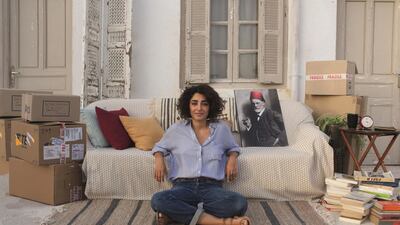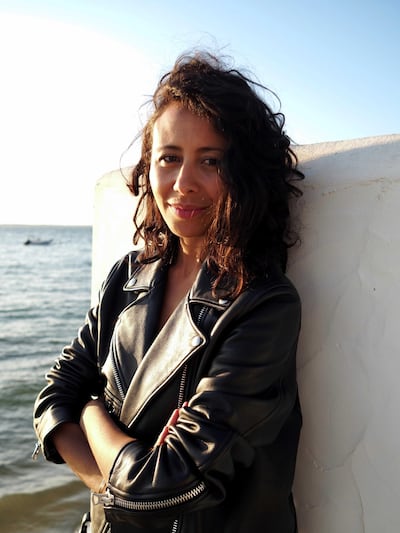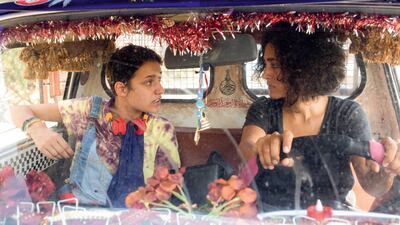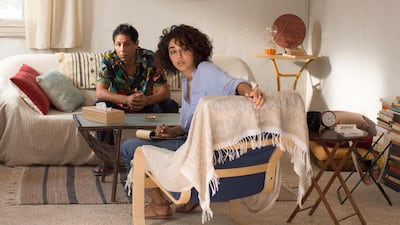If Woody Allen were a French-Tunisian woman, he would have made something such as Arab Blues.
The lightweight comedy had its world premiere at the Venice Film Festival, playing in the Venice Days line-up. The feature debut of French-Tunisian writer and director Manele Labidi, it's a comedic look at today's Tunisia, a country at a crossroads where traditional values and modernity crash headlong into each other.
Golshifteh Farahani, the ever-elegant Iranian actress who has worked for directors Ridley Scott and Jim Jarmusch, takes the lead in Arab Blues. A magnetic and hugely watchable presence, Farahani can enliven even the most mundane of scenarios. She plays Selma Derwich, a psychoanalyst who returns from France to establish a new practice after many years away from the homeland. During her time living in the 17th arrondissement in Paris, there were shrinks everywhere on her street, but it is a profession still largely untapped in Tunisia.
Selma is also defiantly single. "I don't want a man. I like solitude," she intones, a stance that immediately draws suspicion from others. She soon catches the attention of Naim (Majd Mastoura), a local policeman who takes a shine to her. They first meet, amusingly, at a police roadblock. She is asked to pull over and take a breathalyser test for driving under the influence, but there is no pouch to blow into. Instead, she must breathe on to his face. "Budget cuts," the cop shrugs, as she exhales her harissa sauce-smelling breath.
It is the first of several satirical jibes at Tunisia after the 2011 revolution, when longtime president Zine El Abidine Ben Ali was ousted. We briefly see a "Free Tunisia" sign early on in the film. "This country's a mess," Naim later comments. It is something Selma comes to see first hand when she opens her practice in a rundown rooftop space.
Not long after introducing herself to the locals, business starts booming, with long queues outside the door. It seems that just about everyone needs some psychoanalysis.
"We Arabs talk a lot," says Baya (Feryel Chammari), the glamorous hairdresser who has a problem with her mother – she vomits every time she thinks of her. Another male character dreams about Arab dictators and also Vladimir Putin. Whether those who have sought therapy will find this funny is another matter – the director has a tendency to treat deep-seated psychological problems in a rather artful manner.
Some parts of the storyline do amuse – not least the bureaucratic nightmare that Selma faces after she discovers a license is required to practice in Tunisia. While visiting the Ministry of Health, she encounters a woman who seems oblivious to the million hoops that Selma must go through – she needs a letter of recommendation from a senior Tunisian official to ratify her application. Where can she get that from? Well, another senior official, and so on.
One of the plus points about Arab Blues is that Labidi is not afraid to turn the script towards more surreal moments. As in a scene in which Selma's car breaks down and a man dressed in a suit and smoking a cigarette, comes from nowhere and rescues her.
There is romance too. Naim asks Selma on a date, but in the world of Arab Blues, in a manner that is no chocolate box situation. Foolishly, he asks her out shortly after declaring he will have to arrest her if she continues the medical practice without a license. The Tunisian-born Mastoura, who plays Naim, has previously won the Best Actor award at the Berlin Film Festival, for playing a young man in an existential crisis in 2016's Hedi. Here, he is about the only character who is not headed towards a breakdown.
As for Farahani, it is comforting to see her in a leading contemporary role where she is able to demonstrate a dry wit. There is something believable about her as a therapist who could probably do with a few sessions herself.
Called "haughty" and a "post-Colonial snob", by Baya, the hairdresser and her first customer, Selma faces difficulties readjusting to life in the country she left at the age of 10.
Unfortunately, Arab Blues undoes its promising set-up – and the good work of its cast – with a final act that drifts, rather than build on the storyline. Yet, for a first-time film, there are a lot of positives to applaud Labidi for. We will be hearing from her again.




